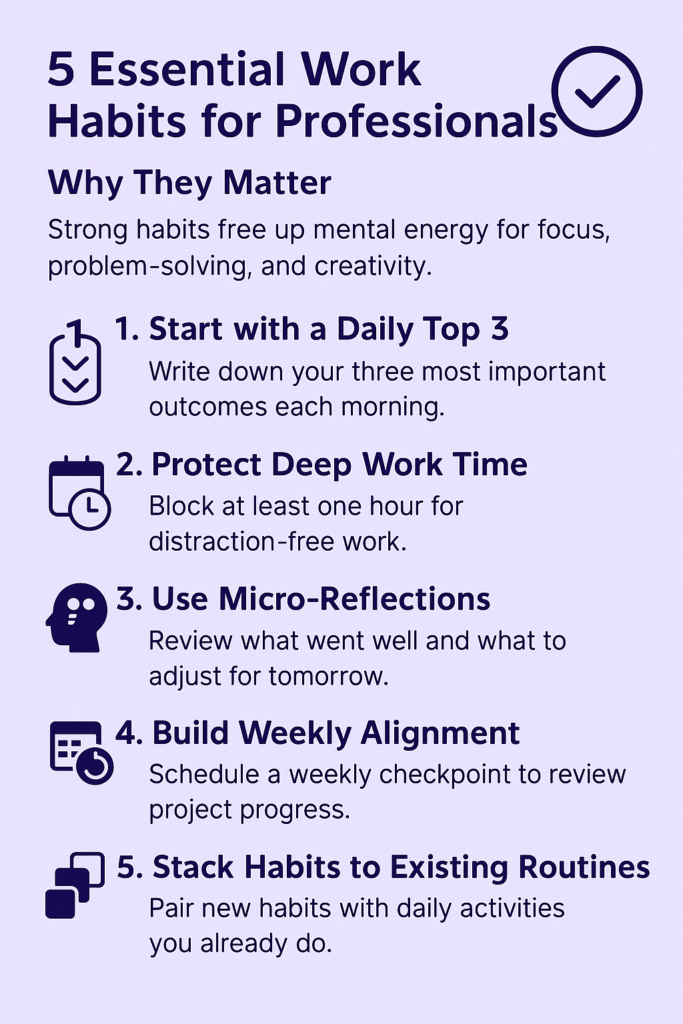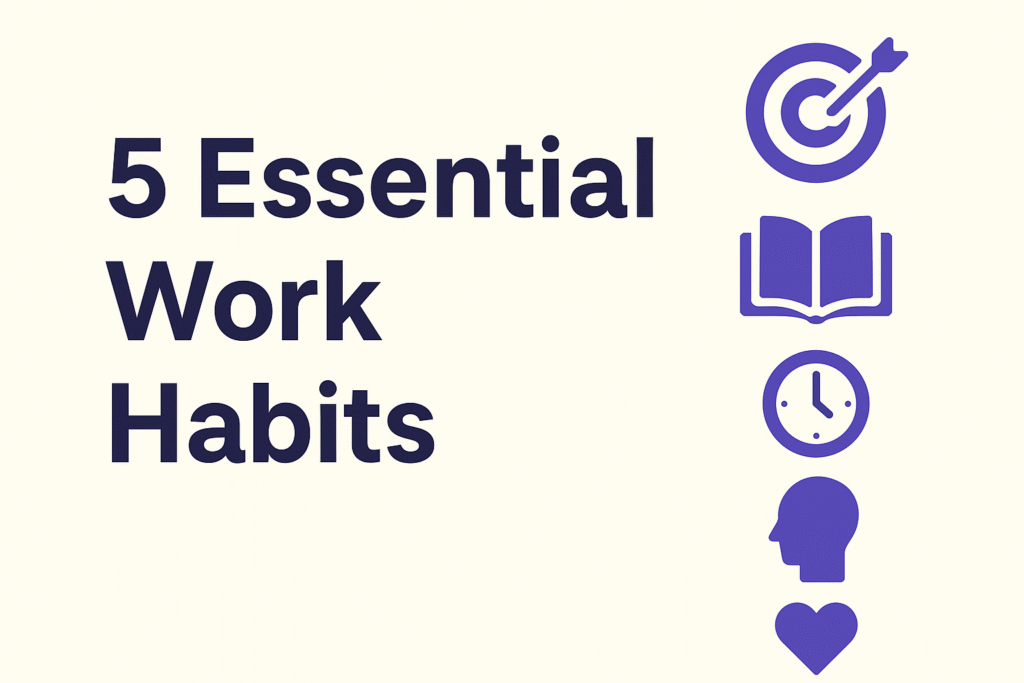Introduction
In today’s demanding workplace, professionals juggle competing priorities, constant interruptions, and high expectations. The difference between thriving and barely keeping up often comes down to one thing: consistent work habits. By building simple, repeatable routines, you can improve focus, reduce stress, and achieve stronger results on every project.
Why Habits Matter at Work
Strong habits aren’t about discipline—they’re about systems. When your routines are automatic, you free up mental energy for creativity, problem-solving, and decision-making. Without them, professionals risk wasted effort, missed deadlines, and burnout.
5 Essential Work Habits for Professionals
1. Start with a Daily Top 3
Every morning, write down the three most important outcomes you need to achieve. This keeps your focus on high-value work instead of reactive tasks.
2. Protect Deep Work Time
Block at least one hour each day for distraction-free work. Treat it like an unmissable meeting. This habit is where your most impactful contributions are made.
3. Use Micro-Reflections
Spend two minutes at the end of the day noting what worked, what didn’t, and one small adjustment for tomorrow. These reflections compound into steady improvement.
4. Build Weekly Alignment
Schedule a 15-minute checkpoint each week—alone or with your team—to review priorities and progress. It prevents projects from drifting and reduces last-minute surprises.
5. Stack Your Work Habits to Existing Routines
Attach new habits to routines you already do. For example, review your daily Top 3 right after your morning coffee, or close your laptop only after completing your reflection. Habit stacking makes consistency much easier.
How to Apply These Work Habits Tomorrow
Tomorrow morning, try writing your Daily Top 3 before opening your email. This small shift directs your energy toward meaningful work rather than reactive busywork.
Common Pitfalls to Avoid
Overloading on new habits: Start small—master one habit at a time.
Dropping habits when busy: Keep habits simple so they survive stressful weeks.
Inconsistent tracking: A quick notebook or digital tracker helps you stay accountable.
Further Reading
For a deeper dive into what it really takes to build new habits take a look at this article from HBR https://hbr.org/2021/02/what-does-it-really-take-to-build-a-new-habit


